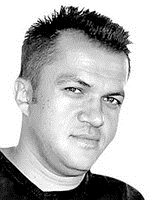Isotc292online.org: You are a member of Serbia’s mirror committee to TC 292. Can you briefly introduce your NSB and mirror committee, please? 
HoD: The Institute for Standardization of Serbia (ISS) is the only recognized national standardization body in the Republic of Serbia, representing the interests of Serbia in the field of standardization in the European and international organizations for standardization, as well as in their bodies. The founder of the Institute is the Government of Serbia.
National mirror committee for Security and resilience cooperates with European and international organizations for standardization and actively participates in developing, reviewing and amending of international, European and Serbian standards related to security and resilience. With its structure National mirror committee represents the interests of different stakeholders: national institutions, agencies, local self-governments, NGOs, private sector, academic institutions and communities.
Isotc292online.org: Who are the key stakeholders of Security and resilience in Serbia?
HoD: Private security companies, public enterprises, government bodies and certification bodies are key stakeholders and users of Security and resilience standards in Serbia.
Isotc292online.org: ISO/TC 292 covers a broad spectrum of standards. In what areas are Serbia’s main interests in the committee?
HoD: Serbia has been affected with the similar security threats as other countries in the region of South Eastern Europe emphasizing the importance of emergency management and protective security standards. Since foreign investments are growing up organizational resilience and business continuity standards are becoming more and more popular in Serbia.
Isotc292online.org: How do you work currently in these areas (e.g.: are there any laws, regulations, national standards or other rules?) and how can ISO standards help?
HoD: National regulation on private security. Institutionally, at the end of 2015, the National Assembly has passed the Law on Recovery Following Natural and Other Disasters that became a standard for any disasters that can strike the country. At the same time, the Office for Reconstruction and Flood Relief was transformed into The Public Investment Management Office. Going forward, a Draft Law on Disaster Risk Reduction and Crisis Management has been developed, based on international standards, the Sendai Framework and the experience that Serbian institutions had gained in severe floods of 2014.
According to the Law on private security National standard on risk assessment for people, property and business is recognized as a basis for protective security in Serbia providing requirements for security providers to do risk assessment dealing with the broad scope of threats.
International standard ISO 22301 Business continuity management systems – Requirements serves as a basis for business continuity plans for the banks and financial institutions in Serbia.
Isotc292online.org: So far have you adopted any standards developed by ISO/TC 292 as a national standard in Serbia?
HoD: Serbia has adopted many standards developed by ISO/TC 292. Following interests of different stakeholder groups some of the standards have been translated into Serbian language, as follows:
-
SRPS ISO 22300 Societal security – Terminology
-
SRPS ISO 22301 Societal security – Business continuity management systems – Requirements
-
SRPS ISO 22320 Societal security – Emergency management – Requirements for incident response
ISS will be considering the adoption of the following ISO/TC292 Standards in 2018:
Due to the similarities among languages in our region translation of international standards into Serbian language has positive impact on regional promotion of international standards widening standardization market.
Isotc292online.org: ISO/TC 292 is now working on various projects. What is your interest in these projects and how would you like to see them develop?
HoD: Since TC292 covers broad scope of items and ongoing projects it has been very challenging to represent interests of many stakeholders in country and members of NMCs. At this moment my priorities have been standardization items related to disaster risk reduction and business continuity management. Namely, ISO 22370 Security and resilience - Framework and principles for methodologies on urban resilience provide good framework for stronger cooperation among different levels of governance (national, subnational and local) in efficient disaster risk management based on partnership.
Disaster risk management cannot be the job for government only. For the system to be efficient, the whole society needs to be involved and have a role of its own. That’s the reason why ongoing work on ISO 22395 Security and resilience - Community resilience - Guidelines for supporting community response to vulnerable people need to be prioritized when investing in community resilience which stays at the top of development agenda for the years to come.
In parallel with that, raising awareness of organizational resilience as a part of community resilience provides good framework for coordination and collaboration as a challenge not only in Serbia but world-wide. In that sense the resilience of critical infrastructure is perceived as a new strategic, legal and institutional framework which should be supported by relevant international standards.
Isotc292online.org: How does your mirror committee involve itself in standard development at present and how do you see this developing in the future?
HoD: Mirror committee has tremendous opportunity and responsibility in transforming developing countries role in standardization community from standards takers to standards makers. Twinning arrangements should be long-term strategy of TC292 if we want to encourage sustainable standardization environment.
Isotc292online.org: What advice can you give to interested parties in Serbia who want to offer their input to the work of ISO/TC 292 and your mirror committee and who should they address?
HoD: The membership and active role of interested parties in Mirror committee provides good framework for new inputs to the work of ISO/TC 292 and the best way for international promotion of good practice. New ideas should be addressed through the Secretariat of Serbian Mirror committee of TC292, KS A 292 Security and Resilience, e-mail: mirjana.djordjevic@iss.rs